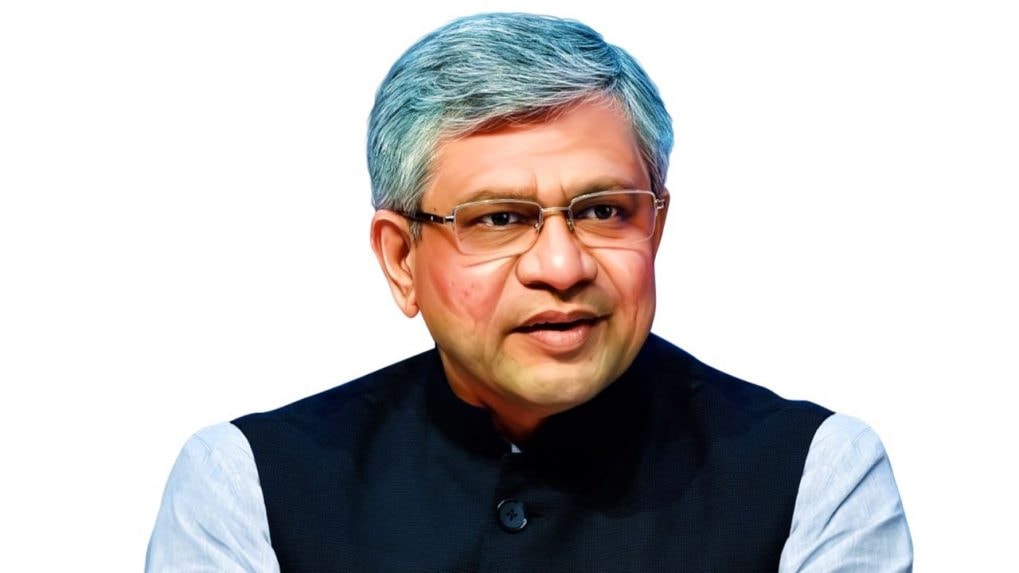India to produce first indigenous chip, develop foundational AI model by year-end: Ashwini Vaishnaw
Vaishnaw confirmed to Forbes India that two landmark developments expected by the end of 2025, that is the production of the country’s first made-in-India chip and the rollout of India’s foundational AI model.
ADVERTISEMENT
A day after the Union Cabinet cleared the decks for a new semiconductor facility by HCL Group and Foxconn, Union Minister Ashwini Vaishnaw outlined India’s ambitious roadmap for artificial intelligence and semiconductor self-reliance. He confirmed to Forbes India that two landmark developments expected by the end of 2025, that is the production of the country’s first made-in-India chip and the rollout of India’s foundational AI model. “We are working to ensure that India remains among the top five nations in AI when it comes to capability, use and talent,” Vaishnaw said.
Five-pillar AI mission
As per the Forbes India report, Vaishnaw explained the government's multi-pronged AI strategy through a five-part national mission. These are democratizing access to compute, foundational model development, techno-legal AI safety institute, talent development and real-world applications. “Our first objective was to provide high-quality GPU compute power to startups, students, academia and researchers,” he said.
Under a public-private partnership model, the mission has already empanelled GPU providers, securing 18,000 GPUs in its first round and receiving applications for over 15,000 more in the second—well above the initial target of 10,000. Additionally, India has developed models with 2 billion and 7 billion parameters. A startup named Sarvam, backed by the India AI mission, is now leading the effort to build the national foundational model. “Sarvam has made some good progress and is taking a unique approach,” Vaishnaw noted.
The minister emphasized a distinctive regulatory approach. “Many countries want to regulate AI using only the legal system. India is considering regulating it in a techno-legal way,” he said, combining legal provisions with technological tools to detect deepfakes, biases, and ensure safe usage. “AI safety is best ensured through developing technologies that help keep AI safe,” he added.
Furthermore, India is rolling out large-scale programmes in collaboration with academia and industry to train people in data annotation, AI app development, and core AI research. AI use cases in health care, climate forecasting, education and agriculture are a key focus. “In weather forecasting, AI models can better simulate atmospheric phenomena, predicting weather events with greater accuracy,” he pointed out. India is also collaborating with France’s Station F to co-develop AI applications with global relevance.
Read More: WAVES to link creators, content buyers and global markets: Ashwini Vaishnaw Why India needs its own AI model?
Despite the popularity of global models like ChatGPT and LLaMA, Vaishnaw argued that India must invest in its own foundational model. “We need a foundational model for three major reasons,” he said. “First, our cultural heritage and linguistic strengths must be reflected. Second, we need to eliminate biases that exist in other models. Third, these technologies are gaining strategic importance, and having our own models gives us strategic strength.”
India is positioning itself as a thought leader in AI governance. “The world is looking at India as a potential leader in developing this new techno-legal model,” said Vaishnaw, stressing that a legal-only framework may fall short of ensuring safety and accountability in AI. With chips and algorithms set to define global power in the coming decades, India’s twin focus on semiconductor manufacturing and AI infrastructure signals its aspiration to be a major digital economy. As Vaishnaw put it, “This is just the first chapter of AI. A lot more is going to come.”
Read More: Union Minister Ashwini Vaishnaw announces Indian Institute of Creative Technology for AVGC-XR sector


